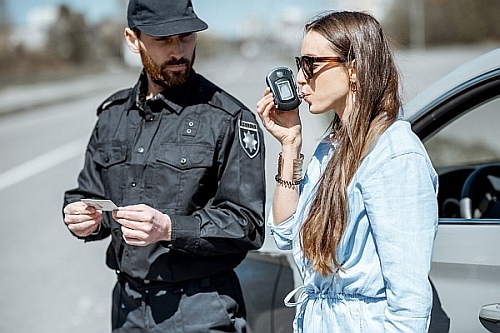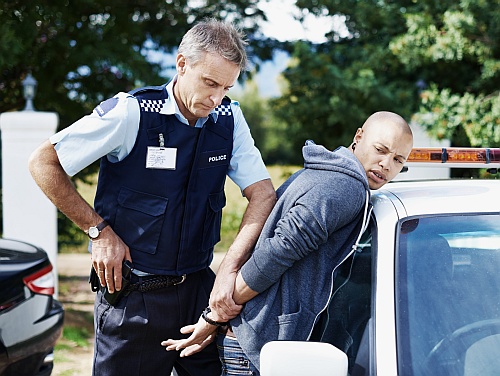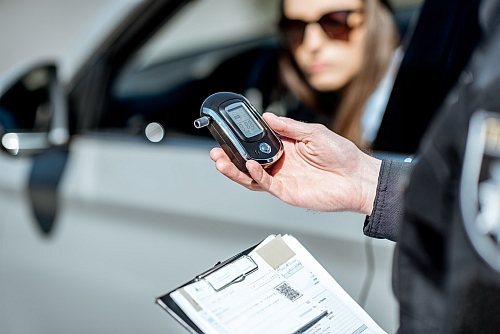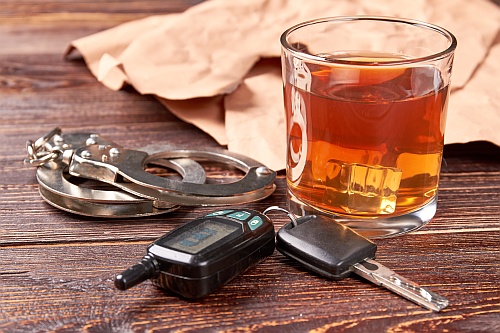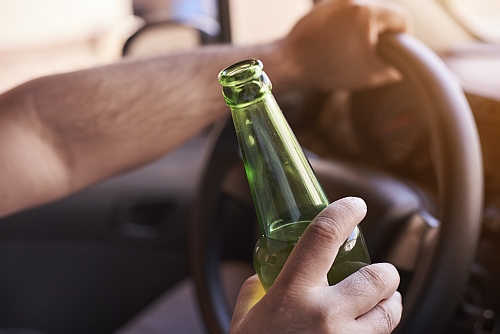- September 28, 2023
- DUI
Implied consent refers to the legal principle that a person who operates a motor vehicle on public roads is considered to have given their consent to certain tests to determine their level of impairment if they are suspected of driving under the influence (DUI) of alcohol or drugs.
These tests typically include breath, blood, or urine tests to measure the driver’s blood alcohol concentration (BAC) or the presence of controlled substances.
The implied consent law is based on the idea that driving is a privilege granted by the state, and in exchange for this privilege, drivers agree to cooperate with law enforcement during DUI investigations. If a driver refuses to submit to these tests, they may face administrative penalties such as the suspension or revocation of their driver’s license, even before any criminal charges are filed.
What Are Implied Consent Laws in South Carolina
South Carolina’s implied consent law, codified under Section 56-5-2950 of the South Carolina Code of Laws, outlines the procedures and requirements for chemical testing and the consequences of refusal. Let’s explore the key provisions of the law.
Key Provisions
Under South Carolina’s implied consent law, anyone who operates a motor vehicle in the state is considered to have given their consent to chemical tests of their breath, blood, or urine if they are arrested for an offense related to driving under the influence of alcohol, drugs, or a combination of both.
Chemical Testing: Breath, Blood, and Urine
When a law enforcement officer arrests an individual for suspected DUI, they must first offer a breath test to determine the person’s alcohol concentration. If the person is physically unable to provide an acceptable breath sample, such as due to injury, unconsciousness, or death, the officer may request a blood sample.
In cases where there is reasonable suspicion of drug use or a combination of alcohol and drugs, the officer may order a urine sample for testing.
Time Limit for Collecting Samples
To ensure the accuracy of test results, a breath sample must be collected within two hours of the arrest, while any additional tests for blood or urine must be collected within three hours.
Training and Certification Requirements for Administering Breath Tests
South Carolina requires that breath tests be administered by individuals trained and certified by the South Carolina Criminal Justice Academy, per policies set by the State Law Enforcement Division (SLED). Before the breath test is administered, a simulator test must be performed to verify the accuracy of the testing equipment.
Collection and Handling of Blood and Urine Samples
Blood and urine samples for testing must be obtained by physicians licensed by the State Board of Medical Examiners, registered nurses licensed by the State Board of Nursing, or other trained medical personnel in a licensed medical facility. The collection and handling of these samples must adhere to approved procedures established by SLED.
Medical Professionals’ Protection from Liability
Healthcare professionals who collect samples or conduct tests in accordance with the implied consent law are protected from civil and criminal liability. However, this protection does not reduce the standard of medical care required during the process. Employers of these professionals are also covered under this qualified release from liability.
Your Rights Under the Implied Consent Law
Understanding your rights under South Carolina’s implied consent law is crucial when faced with a DUI arrest. Let’s explore the rights afforded to you in such situations.
Informed Consent: Written and Verbal Notice
Before any tests are administered, or samples are obtained, the arresting officer must activate the video recording equipment and provide you with a written copy and verbal explanation of your rights.
These rights include the option to refuse the test or provide samples, but with the knowledge that your driver’s license will be suspended or denied for at least six months if you refuse, and your refusal can be used against you in court.
Penalties for Refusal
If you choose to take the test or provide samples and your alcohol concentration is determined to be 0.15% or higher, your driver’s license will be suspended for at least one month. However, refusing the test carries more severe consequences, such as a license suspension for at least six months. It’s important to note that your refusal may also be used as evidence against you in court.
Right to Independent Testing at Your Expense
South Carolina’s implied consent law grants you the right to have a qualified person of your choosing conduct additional independent tests at your expense. This allows you to obtain an alternative evaluation of your blood, breath, or urine samples. However, it’s essential to notify the arresting officer in writing of your intent to pursue independent testing within a specified timeframe.
Requesting an Administrative Hearing
If you refuse the test or your license is suspended as a result of a positive test, you have the right to request an administrative hearing within 30 days of receiving the notice of suspension. This hearing allows you to challenge the suspension and present your case before an administrative hearing officer.
Enrollment in an Alcohol and Drug Safety Action Program
If you choose not to request an administrative hearing or if your suspension is upheld at the hearing, you are required to enroll in an Alcohol and Drug Safety Action Program. This program aims to educate individuals about the dangers of impaired driving and promote responsible behavior.
Administration and Regulations
The administration of South Carolina’s implied consent laws falls under the purview of the State Law Enforcement Division (SLED). Let’s explore the key aspects of the administration and regulations associated with these laws.
Role of the State Law Enforcement Division (SLED)
SLED is responsible for administering the provisions of South Carolina’s implied consent law and making necessary regulations to ensure its implementation. The division plays a crucial role in training and certifying individuals who administer breath tests and establishing approved procedures for collecting and handling blood and urine samples.
Funding and Payment for Tests
The costs associated with chemical tests administered at the direction of law enforcement officers are paid from the state’s general fund. However, if you are subsequently convicted of violating relevant DUI laws, you may be required to pay twenty-five dollars for the costs of the tests.
This amount is placed into a special restricted account managed by the Comptroller General. The funds offset the costs of administering breath testing devices, the breath testing site video program, and the toxicology laboratory.
Reach Out to an Experienced DUI Lawyer Today
When facing the consequences of a DUI arrest, seeking legal representation from an experienced Charleston, SC DUI Attorney is critical.
If you’ve been arrested for drunk driving in South Carolina, don’t hesitate to contact our firm at (843) 277-8711. We offer a free initial consultation.
